Jun 3, 2025 11:25 AM
In Memoriam: Al Foster, 1943–2025
Al Foster, a drummer regarded for his fluency across the bebop, post-bop and funk/fusion lineages of jazz, died May 28…
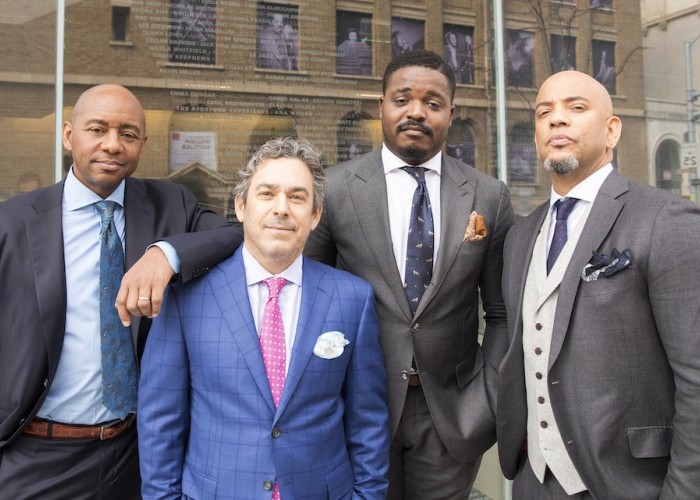
The Braford Marsalis Quartet’s latest album, The Secret Between The Shadow And The Soul, features compositions by the bandleader, pianist Joey Calderazzo and bassist Eric Revis. Drummer Justin Faulkner rounds out the ensemble.
(Photo: Scott Chernis)Whether riffing on his new quartet album, his recent work with singer Kurt Elling, his dynastic jazz family, his formative experiences in Art Blakey’s Jazz Messengers, his teaching experiences (at institutions such as North Carolina Central University), his interest in science or his love of sports, Branford Marsalis speaks his truth.
“We’re all music listeners,” the saxophonist said of his quartet with pianist Joey Calderazzo and bassist Eric Revis—who have been with him for nearly 20 years—and drummer Justin Faulkner, who joined the fold 10 years ago, filling the chair formerly occupied by Jeff “Tain” Watts. “If you see us on a plane, every guy in the band has headphones on.”
The quartet’s new album, The Secret Between The Shadow And The Soul (OKeh/Sony Masterworks), is as immediately intimate as it is infinitely expansive, reflecting a deep interconnectedness among players. Marsalis contributed just one composition to the set, the gloriously moody “Life Filtering From The Water Flowers.” Revis wrote the album’s more adventuresome pieces: the exuberant opener “Dance Of The Evil Toys” and the more somber “Nilaste.” Calderazzo brought in “Cianna” and “Conversation Among The Ruins,” two songs he’d been performing with his trio between road gigs with the Marsalis quartet and Elling.
All of the song selections mutually were agreed upon by the quartet, including the reanimations of Keith Jarrett’s “The Windup” and Andrew Hill’s “Snake Hip Waltz.”
The album serves as a snapshot of where the quartet currently stands: at the top of its game. The same can be said for the band’s onstage presentation, as evidenced by a Jan. 20 concert during an SFJAZZ residency in San Francisco. The quartet worked collaboratively, respectfully and intuitively, and the trust between the musicians was palpable. Marsalis led, but didn’t dominate, giving his bandmates plenty of space to shine.
During the past four decades, Marsalis has traversed vast musical territories. Whether leading his own groups on stages and in studios across the globe; playing alongside artists as diverse as Public Enemy, Tina Turner and the Grateful Dead; appearing on Broadway, in films and on TV; and pursuing a classical music career, his ability to shape-shift and improvise remains central to not only who he is, but who he’s becoming.
DownBeat caught up with Marsalis over breakfast on the third day of his recent residency. Below are edited excerpts from the conversation.
You’ve performed in San Francisco many times. How would you characterize the city and its audience for jazz?
You know, in all places there are several audiences. I remember when I moved to New York, they’d say, “There’s not a lot of jazz fans.” And then they’d say, “There’s not a lot of blacks who like jazz.” Then we did a free concert and there were black people, white people, tall people, short people—everybody, and they were enthusiastic.
When we were younger we were here a lot. It’s changed. There are several San Franciscos, never more than now. I remember when we were playing The Great American Music Hall, and it was packed. The cover was 10 to 15 bucks. That’s not what it is anymore. There’s always going to be a situation where there are audiences more apt to afford it and less likely to enjoy it. It’s the same in sports: The most expensive seats in the stadium sit empty more often than not. The average fan is priced out of the reality. People have always had to decide what they can and can’t spend their money on. I was a Mets season ticket holder. I remember when they were in old raggedy-ass Shea Stadium. You could go to a professional baseball game for $25. Now, that’s the price of popcorn and a Coke. So who is jazz for? Music is for everybody, but there are market realities.
There were some guys in New York that had a jazz meeting, and they were [reminiscing] about 52nd Street: “We need to get back to that, gigs for everybody.” I was talking to Blakey about all sorts of things, I talked to Roy Haynes, and Benny Golson, and all these guys were like, “We need to bring back 52nd Street.”
It’s really easy, I said. All we have to do is sign a pact and say we will agree to play from 9 p.m. till 4 a.m. every night—45 minutes on, 45 minutes off, and agree to play for 40 bucks. There will be clubs as far as the eye can see. That was 52nd Street. You talk to the old guys about it, and they say the music part was great. Every other aspect of it sucked.
One advantage I think I have over a lot of people I meet is I’m not a fan of anything, except New Orleans sports teams: I cheer for the Saints. I want them to win. Notice I don’t say I want us to win. I want them to win. I love those guys. I used to sell programs in the stadium just to watch the games. But my father helped me understand that “we” benefits the team, but it doesn’t really benefit you since you don’t receive any of the largesse of their success. So you need to create a line that delineates what you support from what you actually are.
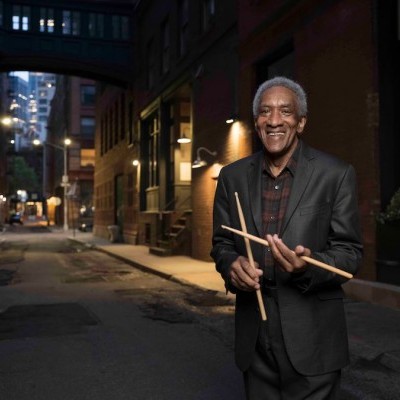
Foster was truly a drummer to the stars, including Miles Davis, Sonny Rollins and Joe Henderson.
Jun 3, 2025 11:25 AM
Al Foster, a drummer regarded for his fluency across the bebop, post-bop and funk/fusion lineages of jazz, died May 28…
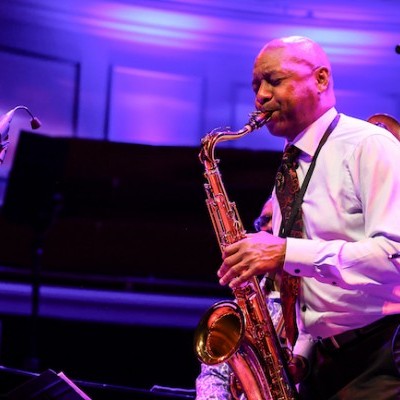
“Branford’s playing has steadily improved,” says younger brother Wynton Marsalis. “He’s just gotten more and more serious.”
May 20, 2025 11:58 AM
Branford Marsalis was on the road again. Coffee cup in hand, the saxophonist — sporting a gray hoodie and a look of…
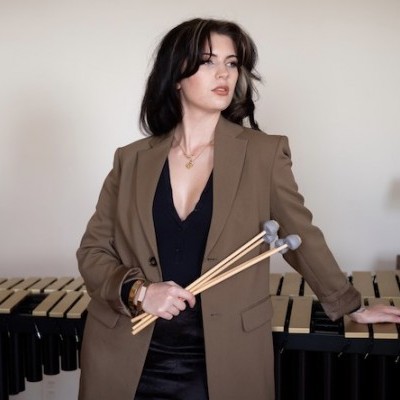
“What did I want more of when I was this age?” Sasha Berliner asks when she’s in her teaching mode.
May 13, 2025 12:39 PM
Part of the jazz vibraphone conversation since her late teens, Sasha Berliner has long come across as a fully formed…

Roscoe Mitchell will receive a Lifetime Achievement award at this year’s Vision Festival.
May 27, 2025 6:21 PM
Arts for Art has announced the full lineup for the 2025 Vision Festival, which will run June 2–7 at Roulette…
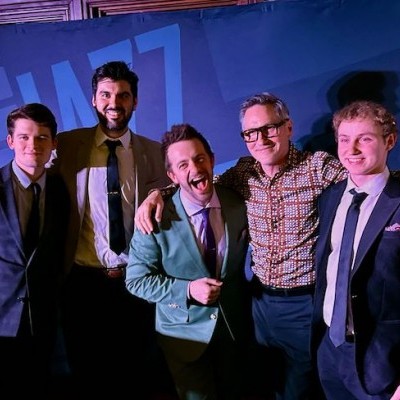
Benny Benack III and his quartet took the Midwest Jazz Collective’s route for a test run this spring.
Jun 3, 2025 10:31 AM
The time and labor required to tour is, for many musicians, daunting at best and prohibitive at worst. It’s hardly…